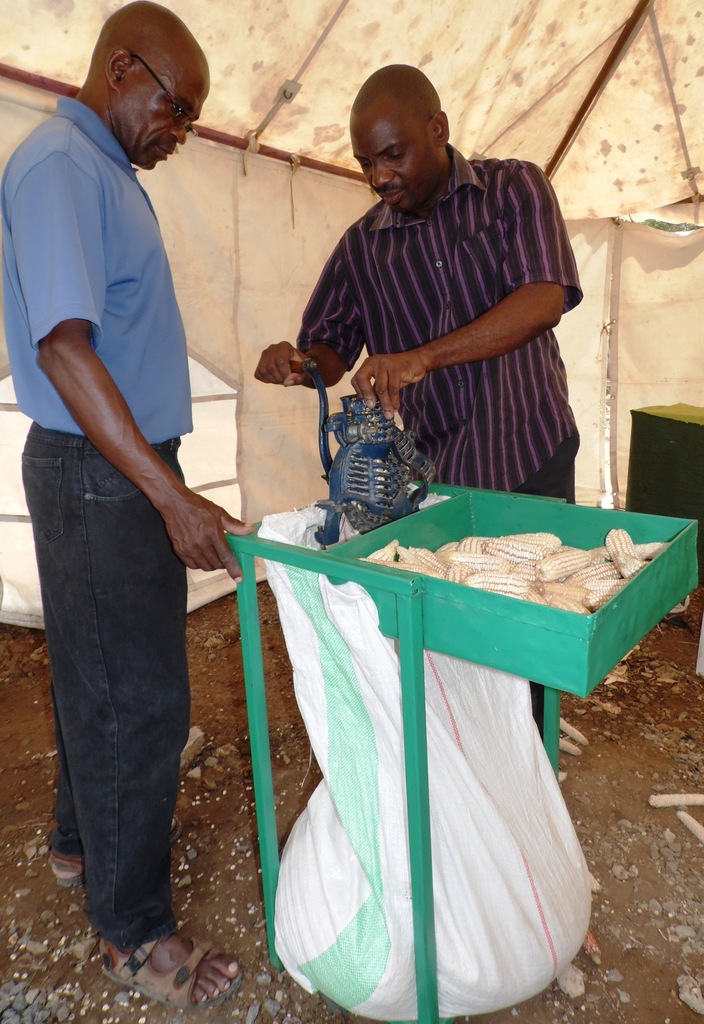One farmer can shell up to eight sacks per day with the help of a cheap manual machine from the Agricultural Technology Development Centre in Kilifi County.
Kea Bakari, a field officer at the Mtwapa-based centre, said the Manual Maize Sheller shells between 70kg and 90 kg per hour.
“The maize must have limited moisture to avoid loses of grains to crashing. A farmer can confirm dryness by crashing sample grain with the help of the teeth. Dry maize crashes with a cracking sound. The pieces scatter and a powder is seen upon careful scrutiny,” Bakari said.
If a farmer shells 90kg per hour, they can get up to eight sacks in a day. To shell one sack of 90kg, it may require two people in a day.
He machine reduces the cost of labour for the process besides fastening the process to allow for proper aeration of the harvest for storage or marketing.
In quickening the process, other farmers pack the maize cobs in sacks before ‘beating’ them with rods. The rods cause wearing f the sacks, which should be used for storage.
READ ALSO:Cheap maize sheller saves farmers tens of hours
The machine has fingerlike projections which remove the grains from the cob as it moves down. The chamber allows the maize cob to move round while exposing the grains to the projections.
It has a handle which is rotated in a clockwise direction and when the grains are free, they are channeled into a receiving sack below the one metre-high stand.
The holding tray and the manual machine cost Sh6,000 while the stand goes for Sh3,000.
A farmer with one acre of maize can shell the entire harvest of about 32-35 bags of 90kg in four days.
READ ALSO: Maize farmers increase shelling speed by 40x with bicycle powered maize sheller
Interested famers can get the machine by contacting ATDC on +254722764503 or any nearest Kenya Agricultural and Livestock Research Organisation.
PHOTO: Kea Bakari running the Manual Maize Sheller during the Mombasa International Agricultural Society of Kenya Show on September 3, 2016. The machine shells 70kg to 90kg per hour. Looking on is a farmer who visited the ATDC stand to learn more. PHOTO BY LABAN ROBERT.
